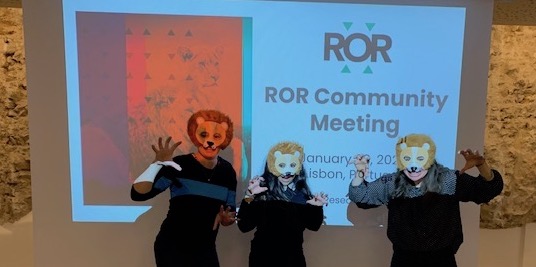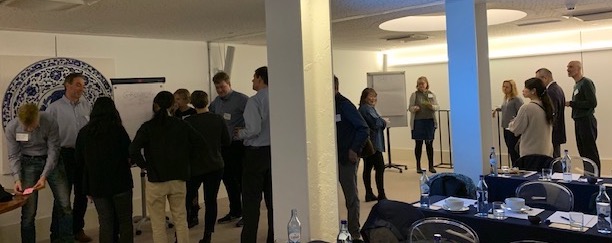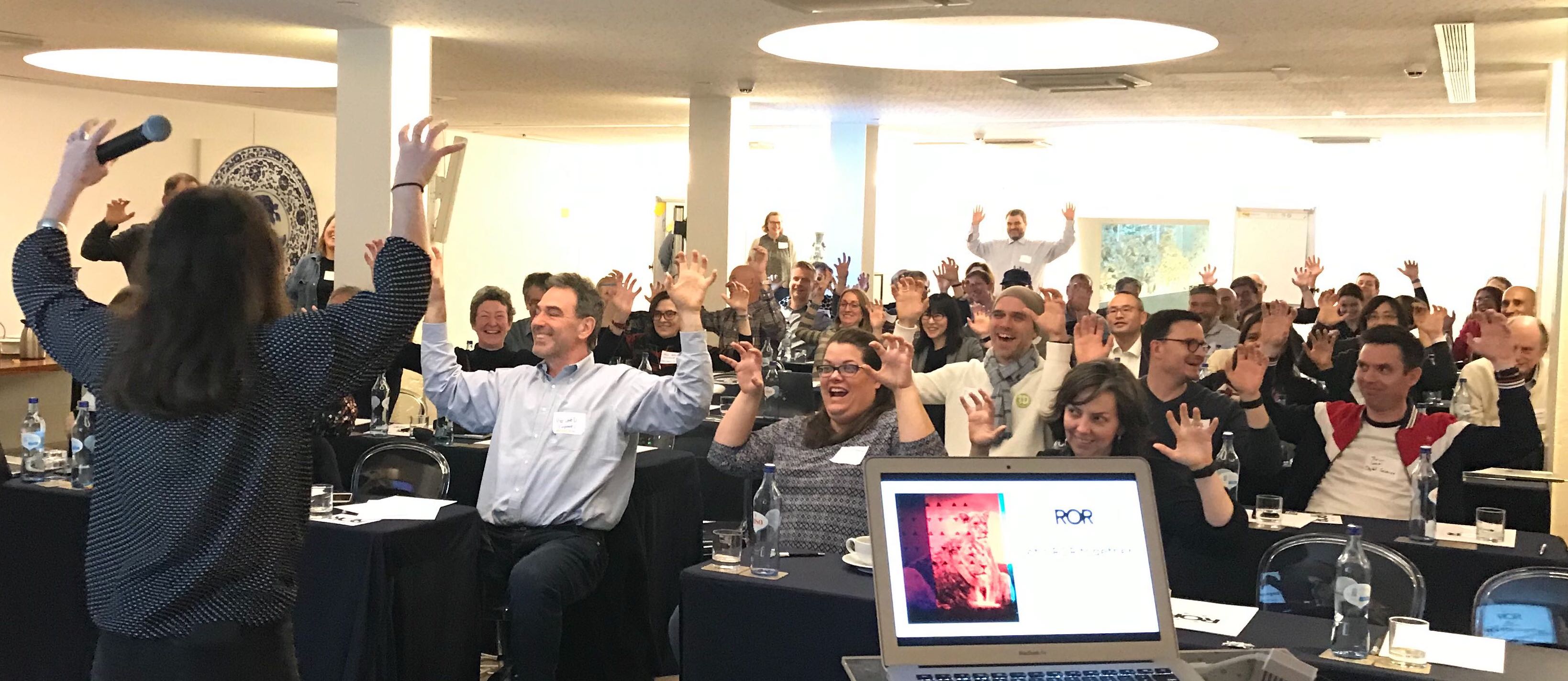ROR had a party in Portugal last month! Sixty friends - some new, some old - came together in Lisbon on the eve of PIDapalooza 2020 to celebrate ROR’s unofficial first birthday, marking one year since the registry debuted at a community meeting in Dublin in January 2019. This year’s gathering was a chance to review the milestones that ROR has passed in the last twelve months, highlight early implementations of ROR, and discuss the work that lies ahead for the next year and beyond with ROR’s active community.

The review of ROR’s first year covered many highlights, including:
- Launch of the registry (with seed data from GRID) and assignment of ROR IDs (January 2019)
- Formation of the ROR Community group (March 2019)
- Addition of ROR IDs in Wikidata (May 2019)
- Updated codebase, auto-sync to GRID, and [public data dump] (https://figshare.com/authors/ROR_Community/6832769) (June/July 2019)
- Support for ROR IDs in DataCite metadata (August 2019)
- Implementation in Dryad (September 2019)
- Announcement of ROR sustainability campaign (October 2019)
- Expansion of the ROR Steering Group (November 2019)
These developments have been key to ROR’s growth, adoption, and sustainability, resulting in:
- ROR IDs and metadata for close to 98,000 organizations
- A set of tools for interacting with registry data, including the ability to match free-text affiliation strings to ROR IDs
- $100,000 in community investments to date, positioning ROR to be able to hire a technical lead to coordinate and accelerate development work in 2020 and beyond
- Active community engagement in bimonthly community calls, a formal statement of support for ROR, and community working groups on data curation and ROR integrations
The meeting also showcased a variety of ways in which ROR is being used and implemented across the community:
- Simon Porter (Digital Science) showed how ROR IDs are being collected in submission workflows for the Physiome Journal
- Jamie McKee (Altum) shared how ROR IDs are being used in institutional profiles in the ProposalCentral grants management platform
- Martin Fenner (DataCite) presented on how ROR IDs are supported in DataCite metadata and how DataCite’s search faceting uses ROR to identify research outputs by a given affiliation
- Christine Ferguson (EMBL-EBI) discussed recent work by the FREYA project to analyze opportunities to integrate organization IDs in PID services and scholarly communication systems, with ROR IDs as a predominant option
- Ted Habermann (Metadata Game Changers) examined the relationship between affiliation “heterogeneity” and ROR adoption among DataCite repositories
- Richard Wynne (Rescognito) demoed a researcher recognition platform that uses ROR IDs to identify organizations
- Carolyn Grant (Harvard Center for Astrophysics) previewed work to link ROR IDs to local department-level identifiers in the Astrophysics Data System
Interesting use case of PIDs implementation in the Physiome Journal, presented by @sjcporter (@digitalsci) at @ResearchOrgs community meeting #letsRORtogether pic.twitter.com/MDIiVIRpgH
— Gabriela Mejias ⭐️⭐️⭐️ @gabioshka@mastodon.social (@gabioshka) January 28, 2020
In the second part of the meeting, the focus was on what comes next for ROR. The key themes for 2020 will be on sustainability, curation, and adoption.
- Sustainability: ROR’s fundraising campaign will continue this year, aiming to reach $400,000 by the end of the 2021 through a combination of community investments and grant funding. The success of the fundraising campaign so far will allow ROR to secure additional resourcing for technical development.
- Curation: Curation is a top priority for ROR development. This will entail technical work to manage ROR data independently, and policy-based work to curate the registry with input and involvement from community members.
- Adoption: Another area of focus will be on driving and supporting greater adoption of ROR IDs in various systems, especially by publishers.
.@ResearchOrgs focusing on sustainability, not creating a new org but utilizing partner support and appreciating the community so early in its life is a good model. #pidaplooza2020 pic.twitter.com/KRi4BiHDG6
— Erin Robinson - @erinmr@mas.to (@connector_erin) January 28, 2020
Meeting attendees spent time working in breakout groups to discuss priorities for ROR associated with specific stakeholder groups: Funders, Publishers, Repository Managers, System Providers, and Data Wranglers. Common themes across these groups were interoperability, end user support, and connectivity between ROR and other identifiers. These discussions will help to inform future developments with ROR.

At the end of the meeting, we all roared together!

It was a fun party, and now it’s time to get back to work! 2020 will be a big year for ROR - thank you for being part of this journey.
RSS Feed
Categories
Archives
Tags
- adoption
- annual-meeting
- api
- aps
- case-studies
- communication
- community
- cross-post
- crossref
- curation
- data
- datacite
- development
- dryad
- feedback
- funders
- governance
- grid
- hierarchy
- implementation
- integrations
- interviews
- jobs
- latin-america
- machine-learning
- matching
- metadata
- mvr
- open-access
- open-infrastructure
- orcid
- persistent-identifiers
- pidapalooza
- pids
- prototype
- publishers
- registry
- research-integrity
- resources
- schema
- steering-group
- sustainability
- team
- working-group